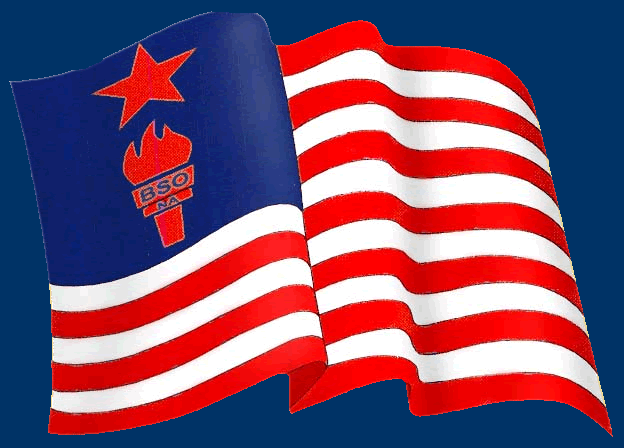| Home I About BSO-NA I About Balochistan I Balochistan News I Facts And Articles I Letters And Opinion I Contact us |
| Baloch Society Of North America (BSO_NA) Baloch Society Of North America (BSO_NA) is Non-Profit Organization, working to unite and Organize all Baloch in North America, to expose the Occupation of our land (Balochistan) and exploitations of our resources by Pakistani and Iranian Governments, and to bring their Human Rights Violations in Balochistan into the world’s Notice. |
The unravelling of Pakistan
Growing tensions in restive Baluchistan and Sindh spell trouble for Islamabad, says
South Asia specialist SELIG HARRISON: Pakistan gets American attention primarily
because it is a hotbed of al-Qaeda activity and a staging area for the Taliban campaign to
recapture Afghanistan. But the most important and least-noticed news about multiethnic
Pakistan is that it is slowly falling apart as tensions grow between its Punjabi-dominated
Growing tensions in restive Baluchistan and Sindh spell trouble for Islamabad, says
South Asia specialist SELIG HARRISON: Pakistan gets American attention primarily
because it is a hotbed of al-Qaeda activity and a staging area for the Taliban campaign to
recapture Afghanistan. But the most important and least-noticed news about multiethnic
Pakistan is that it is slowly falling apart as tensions grow between its Punjabi-dominated
military regime and its restive ethnic minority regions of Baluchistan and Sindh. To suppress a growing Baluch
insurgency in the southwest, President Pervez Musharraf has diverted significant military forces from the Afghan
frontier. Six Pakistani army brigades, paramilitary forces totalling 35,000 men, and U.S.-supplied helicopter
gunships and F-16 fighter jets are currently deployed in the Kohlu mountains and surrounding areas.
The United States, which dismisses the insurgency as an "internal" Pakistani affair, should be actively promoting a
political settlement between Islamabad and the Baluch for two urgent reasons: to stop the diversion of U.S.-
supplied equipment from the battle against al-Qaeda and the Taliban, and to end the misuse of U.S.-supplied
aircraft in bombing and strafing operations that have killed hundreds of women and children in Baluchistan since
January of 2005. Even more important, a settlement is critical to head off a steadily developing disintegration of
Pakistan that would destabilize the entire South Asian region.
In Sindh, adjacent to Baluchistan, separatists who share Baluch opposition to Gen. Musharraf's regime are reviving
their long-simmering movement for a sovereign Sindhi state, or a Sindhi-Baluch federation, that would stretch
along the Arabian Sea from Iran to the Indian border
Many Sindhi leaders openly express their hope that instability in Pakistan will sooner or later tempt India to help
them militarily and economically to secede from Pakistan as Bangladesh did with Indian help in 1971.
There are six million Baluch in Pakistani Baluchistan and 1.2 million in eastern Iran. The Sindhis number 23.4
million, all in Pakistan.The Pakistani Baluch areas were forcibly incorporated into Pakistan when it was created in
1947 and have since fought three insurgencies before this one. In the most bitter one, from 1973 to 1977, some
80,000 Pakistani troops and 55,000 Baluch were involved at various stages of the fighting. Much of the anger that
motivates the Baluchistan Liberation Army today is driven by memories of Pakistani "scorched earth" tactics in past
battles.
Iran, like Pakistan, was a U.S. ally during the 1973-1977 conflict. Shah Mohammed Reza Pahlavi, who feared that
the insurgency would spread across the border to the Baluch living in eastern Iran, sent 30 Cobra gunships with
Iranian pilots to help Pakistan. But, this time, Tehran is no longer an ally of Washington, and is also at odds with
Islamabad. Iran has charged that U.S. Special Forces units are using bases in Pakistan for undercover operations
inside Iran designed to foment Baluch opposition to the regime of President Mahmoud Ahmadinejad.
The big difference between earlier phases of the Baluch struggle and the current one is that Islamabad has not
been able to play off feuding tribes against each other. Equally important, it faces a unified nationalist movement
under younger leadership drawn not only from tribal leaders but also from an emergent, literate Baluch middle
class that did not exist three decades ago. Another key difference is that the Baluch have a better armed and more
disciplined fighting force in the Baluchistan Liberation Army. Baluch leaders say rich compatriots and sympathizers
in the Persian Gulf are providing the money needed to buy weapons in the flourishing black market along the
Afghan frontier.
Gen. Musharraf has repeatedly accused India of providing weapons to the Baluch insurgents and funds to Sindhi
separatist groups, but has provided no evidence to back up his charges. India denies the accusations. At the same
time, New Delhi has issued periodic statements expressing "concern" at the fighting and calling for political
dialogue.
India brushes aside suggestions that it might be tempted to help Sindhi and Baluch insurgents if the situation in
Pakistan continues to unravel. On the contrary, Indian leaders say, India wants a stable Pakistan that will negotiate
a peace settlement in Kashmir, so both sides can wind down their costly arms race. But many Indian media
commentators appear happy to see Gen. Musharraf tied down in Baluchistan and hope the Baluch crisis will force
him to reduce Pakistani support for Kashmir Islamic extremists.
Unlike India, Iran has its own Baluch minority and fears Baluch nationalism. Tehran recently launched a campaign
of repression in which "hundreds" of Baluch were rounded up and, in many cases, executed on charges of
collaborating with the United States.
Many Baluch and Sindhi leaders are not yet pushing for independence and are ready to settle for the degree of
provincial autonomy envisaged in a 1973 constitution that successive military regimes have ignored. Washington
should seek to promote a political settlement with the Baluch and Sindhis based on autonomy; but, realistically, a
constitutional compromise is not likely unless Gen. Musharraf steps down and permits the presidential election
scheduled for next year to be conducted fairly with the participation of two exiled former prime ministers, Benazir
Bhutto and Nawaz Sharif.
Given continued military rule, the Baluch and Sindhi insurgencies are likely to be increasingly radicalized, and the
danger of a breakup of Pakistan will grow, with incalculable consequences for the United States and South Asia.
Selig S. Harrison, a former Washington Post bureau chief in New Delhi, has covered Pakistan since 1951 and is
the author of five books on Asia, including In Afghanistan's Shadow, a study of Baluch nationalism. He is director of
the Asia program at the Washington-based Center for International Policy and a senior scholar at the Woodrow
Wilson International Center for Scholars.
Related Links:
insurgency in the southwest, President Pervez Musharraf has diverted significant military forces from the Afghan
frontier. Six Pakistani army brigades, paramilitary forces totalling 35,000 men, and U.S.-supplied helicopter
gunships and F-16 fighter jets are currently deployed in the Kohlu mountains and surrounding areas.
The United States, which dismisses the insurgency as an "internal" Pakistani affair, should be actively promoting a
political settlement between Islamabad and the Baluch for two urgent reasons: to stop the diversion of U.S.-
supplied equipment from the battle against al-Qaeda and the Taliban, and to end the misuse of U.S.-supplied
aircraft in bombing and strafing operations that have killed hundreds of women and children in Baluchistan since
January of 2005. Even more important, a settlement is critical to head off a steadily developing disintegration of
Pakistan that would destabilize the entire South Asian region.
In Sindh, adjacent to Baluchistan, separatists who share Baluch opposition to Gen. Musharraf's regime are reviving
their long-simmering movement for a sovereign Sindhi state, or a Sindhi-Baluch federation, that would stretch
along the Arabian Sea from Iran to the Indian border
Many Sindhi leaders openly express their hope that instability in Pakistan will sooner or later tempt India to help
them militarily and economically to secede from Pakistan as Bangladesh did with Indian help in 1971.
There are six million Baluch in Pakistani Baluchistan and 1.2 million in eastern Iran. The Sindhis number 23.4
million, all in Pakistan.The Pakistani Baluch areas were forcibly incorporated into Pakistan when it was created in
1947 and have since fought three insurgencies before this one. In the most bitter one, from 1973 to 1977, some
80,000 Pakistani troops and 55,000 Baluch were involved at various stages of the fighting. Much of the anger that
motivates the Baluchistan Liberation Army today is driven by memories of Pakistani "scorched earth" tactics in past
battles.
Iran, like Pakistan, was a U.S. ally during the 1973-1977 conflict. Shah Mohammed Reza Pahlavi, who feared that
the insurgency would spread across the border to the Baluch living in eastern Iran, sent 30 Cobra gunships with
Iranian pilots to help Pakistan. But, this time, Tehran is no longer an ally of Washington, and is also at odds with
Islamabad. Iran has charged that U.S. Special Forces units are using bases in Pakistan for undercover operations
inside Iran designed to foment Baluch opposition to the regime of President Mahmoud Ahmadinejad.
The big difference between earlier phases of the Baluch struggle and the current one is that Islamabad has not
been able to play off feuding tribes against each other. Equally important, it faces a unified nationalist movement
under younger leadership drawn not only from tribal leaders but also from an emergent, literate Baluch middle
class that did not exist three decades ago. Another key difference is that the Baluch have a better armed and more
disciplined fighting force in the Baluchistan Liberation Army. Baluch leaders say rich compatriots and sympathizers
in the Persian Gulf are providing the money needed to buy weapons in the flourishing black market along the
Afghan frontier.
Gen. Musharraf has repeatedly accused India of providing weapons to the Baluch insurgents and funds to Sindhi
separatist groups, but has provided no evidence to back up his charges. India denies the accusations. At the same
time, New Delhi has issued periodic statements expressing "concern" at the fighting and calling for political
dialogue.
India brushes aside suggestions that it might be tempted to help Sindhi and Baluch insurgents if the situation in
Pakistan continues to unravel. On the contrary, Indian leaders say, India wants a stable Pakistan that will negotiate
a peace settlement in Kashmir, so both sides can wind down their costly arms race. But many Indian media
commentators appear happy to see Gen. Musharraf tied down in Baluchistan and hope the Baluch crisis will force
him to reduce Pakistani support for Kashmir Islamic extremists.
Unlike India, Iran has its own Baluch minority and fears Baluch nationalism. Tehran recently launched a campaign
of repression in which "hundreds" of Baluch were rounded up and, in many cases, executed on charges of
collaborating with the United States.
Many Baluch and Sindhi leaders are not yet pushing for independence and are ready to settle for the degree of
provincial autonomy envisaged in a 1973 constitution that successive military regimes have ignored. Washington
should seek to promote a political settlement with the Baluch and Sindhis based on autonomy; but, realistically, a
constitutional compromise is not likely unless Gen. Musharraf steps down and permits the presidential election
scheduled for next year to be conducted fairly with the participation of two exiled former prime ministers, Benazir
Bhutto and Nawaz Sharif.
Given continued military rule, the Baluch and Sindhi insurgencies are likely to be increasingly radicalized, and the
danger of a breakup of Pakistan will grow, with incalculable consequences for the United States and South Asia.
Selig S. Harrison, a former Washington Post bureau chief in New Delhi, has covered Pakistan since 1951 and is
the author of five books on Asia, including In Afghanistan's Shadow, a study of Baluch nationalism. He is director of
the Asia program at the Washington-based Center for International Policy and a senior scholar at the Woodrow
Wilson International Center for Scholars.
Related Links:
-
Pakistan's Costly 'Other War'
-
By Selig Harrison


